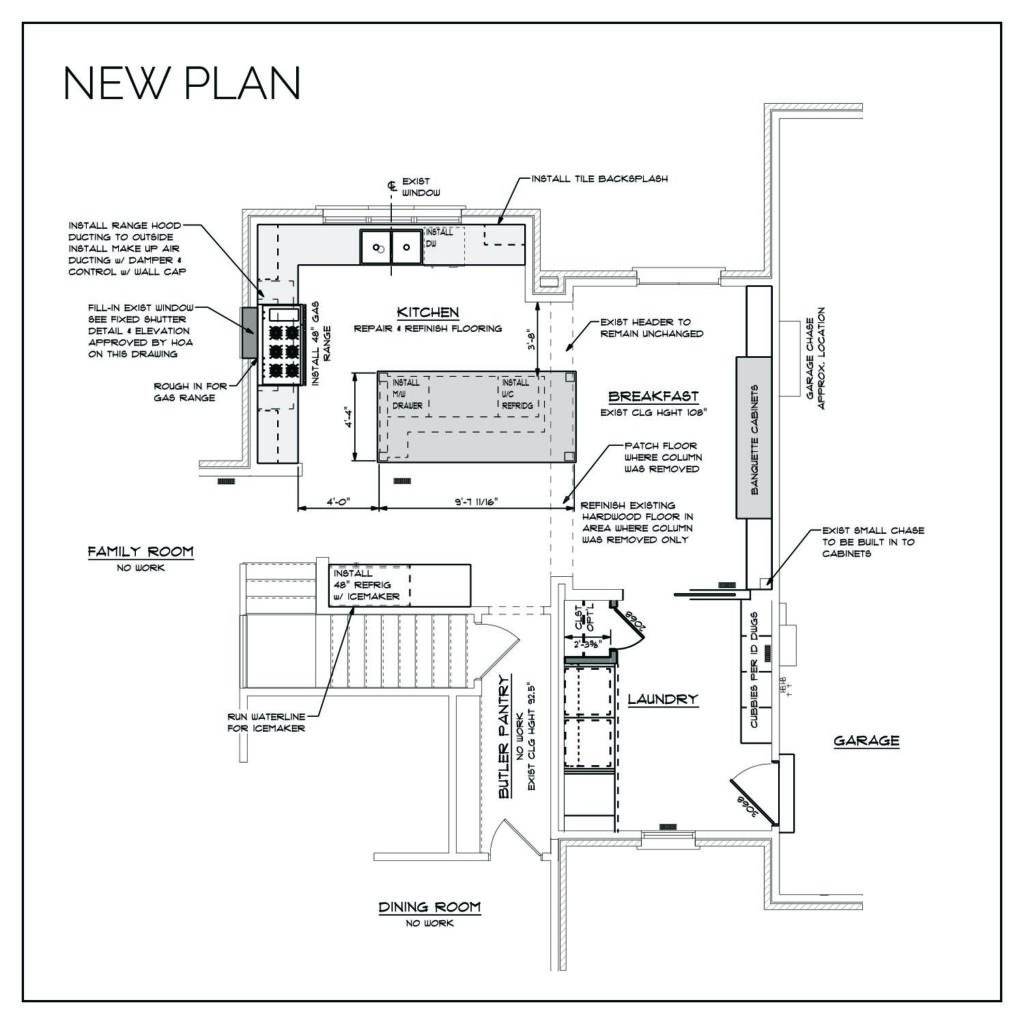Working on your first home renovation project can be an exciting yet daunting experience. One of the key aspects to consider is the variability in remodeling costs, which can depend greatly on the scope and details of the project.
For instance, in Detroit, Michigan, the cost for bathroom remodeling can range from $7,500 to a substantial $43,800, hinging on factors like bathroom size and the extent of renovations planned. Such a wide range in costs underscores the importance of careful planning and informed decision-making in home remodeling.
For first-timers, navigating through this process can be challenging. This guide aims to offer six essential tips to help you manage your first home renovation project effectively, ensuring a smoother experience and a result you can be proud of.
Page Contents
Choosing the Right Contractor
Finding a Reliable Professional
The cornerstone of a successful home renovation is the contractor you choose. It’s crucial to find someone who is not only skilled and experienced but also reliable and communicative. Begin by conducting thorough research – look for contractors with good reviews, a solid portfolio of completed projects, and a reputation for meeting deadlines and budgets.
Research and Referrals
Start your contractor search by asking for referrals from friends, family, or neighbors who have had similar work done. Online platforms can also offer a wealth of information through customer reviews and ratings.
Vetting Contractors
After narrowing down your list, vet each contractor carefully, like verifying their licenses and insurance and checking references. Ask about their experience with projects similar to yours. For those in specific areas, such as West Michigan, it’s best to consider specialized options, like hiring Home Pro of West Michigan, which is known for its expertise in particular renovation types.
Realistic Budgeting

Setting a Feasible Budget
A well-planned budget is fundamental to the success of your renovation project. Start by determining how much you can realistically afford to spend. It’s important to be honest about your financial limits to avoid overextending yourself. Get multiple quotes from different contractors to get an idea of the cost for your specific project, and use this information to set a practical budget.
Accounting for Unexpected Costs
In any renovation project, unexpected costs are almost inevitable. Whether it’s unforeseen structural issues or last-minute changes in material choices, these can impact your budget significantly. To mitigate this, include a contingency fund in your budget, typically 10-30% of the total project cost, to cover these surprise expenses.
Cost-Saving Tips
There are ways to save money without compromising on the quality of your renovation, which might include opting for cost-effective materials, doing some of the work yourself if you are capable, or repurposing existing materials. Remember, cost-saving doesn’t mean cutting essential corners. It’s about making smart choices that align with both your budget and your renovation goals.
Design and Planning

Visualizing Your End Goal
Having a clear vision of what you want to achieve with your renovation is crucial. Whether you’re aiming for a complete overhaul or a simple refresh, knowing your end goal will guide all subsequent decisions. Consider factors like your home’s existing layout, your distinct style, and how the space will be used.
Professional Design Input
While you may have a good idea of what you want, consulting a professional designer can add immense value. Designers can offer insights into the latest trends, help in maximizing space utility, and ensure the design aligns with structural feasibility. They can also assist in selecting materials and colors that complement each other well.
Detailed Planning
Detailed planning involves more than just design; it encompasses everything from material selection to setting timelines. It’s crucial to outline each phase of the project, decide on the materials and finishes, and plan for any potential disruptions to your daily life. Effective planning minimizes the likelihood of delays and helps in keeping the project on track.
Navigating Permits and Regulations

Understanding and adhering to local building codes and regulations is a critical yet often overlooked aspect of home renovation. These regulations are in place to ensure safety and compliance with local construction standards. Ignoring these can lead to fines, legal issues, and, in some cases, the need to redo parts of your project. Prior to beginning any work, research the specific building codes and permits required for your type of renovation, and this might include structural changes, electrical updates, or significant alterations to plumbing systems.
Securing the necessary permits is a step that cannot be skipped. The process can vary greatly depending on the scope of your project and your locality. Experienced contractors can often assist with this process, as they are typically familiar with the necessary paperwork and procedures. Ensuring that all legal requirements are met not only keeps your project on the right side of the law but also ensures that your renovations are safe and up to code.
Working with contractors who are well-versed in local regulations and permit processes can streamline this aspect of your project. They can handle the bureaucratic aspects, leaving you to focus on the design and functional aspects of your renovation. Remember, compliance with regulations is not just a legal requirement; it’s also about ensuring the long-term safety and viability of your home improvements.
Preparing for Disruption
Renovating a home is a significant undertaking that can disrupt your daily life. It’s important to be prepared for the noise, dust, and general upheaval that comes with home improvement projects. In some cases, parts of your home may be inaccessible or unusable for a period. Planning for these disruptions in advance can help minimize stress and make the renovation process more bearable.
If the renovation is extensive, you might need to consider temporary living arrangements. It could be as simple as setting up a temporary kitchen space during a kitchen remodel or, for larger projects, finding alternative accommodation. Plan for this well in advance of the project start date to ensure a smooth transition.
Keeping open lines of communication with your contractor is crucial during the renovation process. Regular updates on the progress of the work and any changes to the schedule can help you adjust your daily routine accordingly. Remember, flexibility and patience are key during home renovations. While disruptions are inevitable, effective planning and communication can help manage these challenges effectively.
Quality Checks and Final Touches

As your renovation project nears completion, it’s important to stay engaged and conduct regular quality checks, and this involves monitoring the progress of the work and ensuring that everything is being completed to your satisfaction and in line with the agreed-upon plan. Pay attention to details, and don’t hesitate to raise concerns with your contractor if something doesn’t seem right.
Quality assurance is not just about the outcome; it’s about ensuring that each stage of the project meets your expectations. It includes the quality of materials used, the craftsmanship of the work, and the overall aesthetic of the renovation. Regular checks can help catch any issues early, making them easier and less costly to rectify.
Adding your personal touches to the renovation is what truly turns a house into a home. Whether it’s selecting the perfect curtains, hanging artwork, or choosing decorative elements, these final touches reflect your unique style and make your renovated space feel truly yours. Enjoy this part of the process, as it signifies the completion of your hard work and planning.
Conclusion
Embarking on your first home renovation project can be a challenging yet rewarding experience. By carefully choosing the right contractor, setting a realistic budget, meticulously planning your design, navigating permits and regulations, preparing for disruptions, and conducting thorough quality checks, you can ensure a successful renovation. Remember, a well-planned and executed home renovation not only enhances your living space but also adds value to your property. With patience, planning, and a clear vision, you can transform your house into the home of your dreams.






